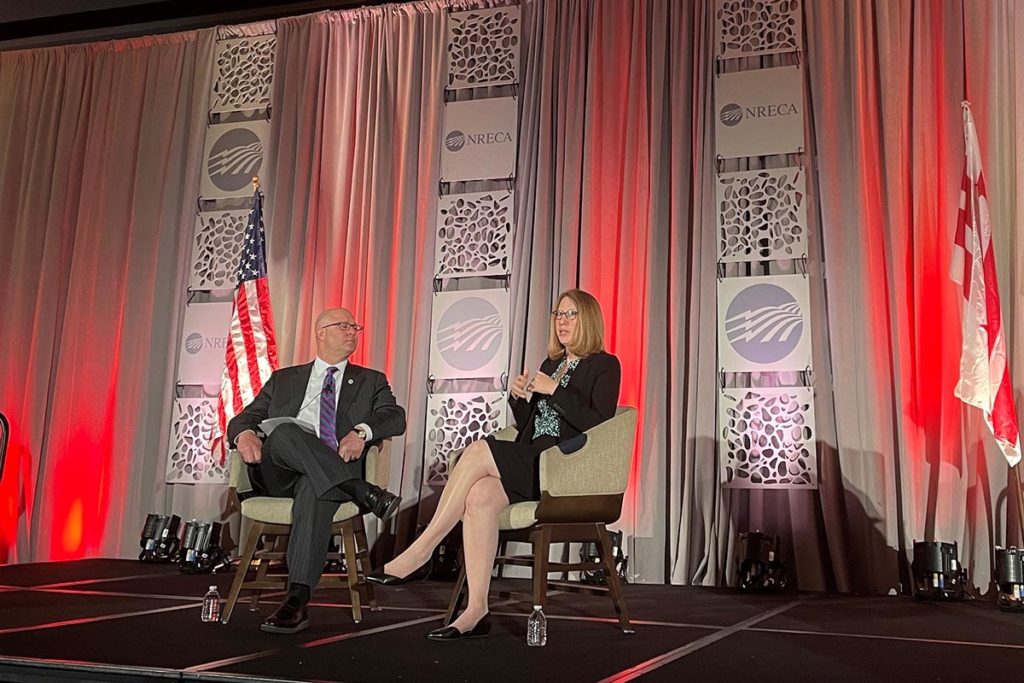
Supply chain disruptions plaguing the electric industry are a top focus for the Department of Energy, the principal deputy director of the agency’s Office of Policy told electric cooperative leaders Monday at NRECA’s Legislative Conference.
The COVID-19 pandemic created global supply chain problems that have been exacerbated by the fact that many crucial components for the energy industry are not made domestically, said Carla Frisch, who is also the acting executive director of the policy office.
NRECA has held a series of briefings with the White House and DOE on supply chain challenges and has encouraged the administration to take action to limit the impact of equipment shortages on electric co-ops. Among the equipment shortages affecting co-ops are a scarcity of transformers, conductor for power lines and fiber optic cable.
DOE officials want to continue to partner with electric co-ops to help solve the supply chain problem in both the short and long term, Frisch said.
“Our focus is: How can we help communities build the economic prosperity that they need?” she said. “You’re at the heart of that.”
Frisch said DOE is already working closely with NRECA and through the Electricity Subsector Coordinating Council. The council serves as a liaison between the federal government and the electric power industry on how best to prepare for, and respond to, large-scale natural disasters and threats to critical infrastructure.
DOE has a new network of “regional specialists” that co-ops can now reach out to for help and advice, Frisch said.
“The door is open to co-ops,” she said. “We really want to understand the work you’re doing.”
Frisch also said she hopes that co-ops will take full advantage of the funding opportunities in the $1.2 trillion bipartisan infrastructure bill passed by Congress last year.
The law provides billions for broadband deployment, EV charging networks, electric transmission, energy storage, carbon capture and other clean energy technologies.
“The bipartisan infrastructure law is a very significant investment in the U.S. energy sector,” Frisch said.
Erin Kelly is a staff writer for NRECA.